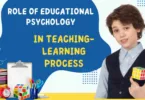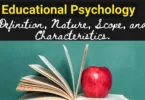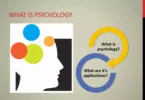The pragmatism philosophy of education is based on the belief that education should be practical and focused on real-world problem-solving. It emphasizes the importance of experience, experimentation, and critical thinking in the learning process. Pragmatist educators believe that students should learn by doing and that the purpose of education is to prepare individuals to be active and productive members of society.
Some key principles of the Pragmatism philosophy of education include:
- Learning should be student-centered and hands-on, with a focus on real-world applications.
- Education should be tailored to the needs and interests of individual students.
- Teachers should act as facilitators and guides, rather than authoritarian figures.
- Critical thinking and problem-solving skills are essential for a well-rounded education.
- Collaboration and cooperation are important components of the learning process.
Pragmatism is an educational philosophy that focuses on life and growth. It emphasizes practicality and experience as the criteria for knowledge and truth.
Pragmatism is based on the belief that there is no absolute truth. Instead, what matters is what works in a particular situation. It encourages people to think for themselves and to question authority. It also stresses the importance of practicality and usefulness in knowledge.
In education, pragmatism emphasizes the importance of experiential learning, critical thinking, and problem-solving to prepare students for the real world.
There are four types of pragmatism, each with a different focus: Humanistic Pragmatism, Experimental Pragmatism, Nominalistic Pragmatism, Biological Pragmatism
One of the most important schools of philosophy of education is pragmatism. The term pragmatism has been derived from the Greek term pragma which means use. Thus, pragmatism is an ism according to which use is the criteria of reality. Pragmatism is a philosophical tradition that began in the United States around 1870. Charles Sanders Peirce is generally considered to be its founder. Pragmatism rejects the idea that the function of thought is to describe, represent, or mirror reality. Instead, pragmatists consider thought an instrument or tool for prediction, problem-solving, and action.
Pragmatists contend that most philosophical topics—such as the nature of knowledge, language, concepts, meaning, belief, and science—are all best viewed in terms of their practical uses and successes. The philosophy of pragmatism emphasizes the practical application of ideas by acting on them to test them in human experiences.
Fundamental Principles of Pragmatism
The following are the fundamental principles of pragmatism in the field of education:
Pluralism
Philosophically, the pragmatists are pluralists. According to them, there are as many worlds as human beings. The ultimate reality is not one but many. Everyone searches for the truth and aim of life according to his experiences. The truth changes according to different spatio-temporal circumstances.
Pragmatist Emphasis on change
The pragmatists emphasize changing the word is a process, a constant flux. Truth is always in the making. The world is ever-progressing and evolving. Therefore, everything here is changing.
Pragmatists Are Utilitarianism
Pragmatists are utilitarians. Utility is the test of all truth and reality. A useful principle is true. Utility means fulfillment of human purposes. The results decide the good and evil of anything, ideas, beliefs, and acts. If the results are good, these are good, if bad these are evil. Beliefs and theories are determined by circumstances. Utility means satisfaction of human needs.
Changing Aims and Values
The aims and values of life change in different times and climes. The old aims and values, therefore, cannot be accepted as they are. Human life and the world are a laboratory in which the aims and values are developed. Everyone should seek aims and values according to his tendencies and abilities.
Individualism
Pragmatists are individualists. They put a maximum premium upon freedom in human life. Liberty goes with equality and fraternity. Everyone should adjust to his environment. Emphasis on social aspects. Since man is a social animal, therefore, he develops in social circumstances. His success is success in society. Education aims to make him successful by developing his social personality.
Experimentalism
Pragmatists are experimentalists. They give more importance to action than ideas. Activity is the means to attain the end of knowledge. Therefore, one should learn by doing constant experimentation which is required in every field of life.
According to William James, “Pragmatism is a temper of mind, an attitude, it is also a theory of the nature of ideas and truth, and finally it is a theory about reality” (Shivendra, 2006).
Forms of Pragmatism
According to H.H. Home, “The main principle of pragmatism is that the theories that work are true”. As E.S. Brightman maintains, “Primarily, pragmatism is a criterion of truth.” According to them everyone should discover his truth according to his experience and commonsense. The following four types of pragmatism are distinguished according to emphasis:
1. Humanistic pragmatism
This type of pragmatism is particularly found in social sciences. According to it the satisfaction of human nature is the criterion of utility. All truths are human truths. As the British humanist philosopher F.C.S. Schiller pointed out, “Some London squires are circular”. Contradiction in this statement disappears when we know that the term squire here means the meeting of roads and not the geometrical figure known by this name. Similar instances may be multiplied in different social sciences. In philosophy, in religion, and even in science man is the aim of all thinking and everything else is a means to achieve human satisfaction.
2. Experimental Pragmatism
Modern science is based on experimental methods. The fact that can be ascertained by experiment is true. In other words, whatever works in the real world is the truth. The truth of a theory in science can be ascertained by its workability. No truth is final, truth is known only to the extent it is useful in practice.
Pragmatists use this criterion of truth in every field of life. The field of experiment, however, is widest in the field of science. In science, experiment is the only basis for concluding a controversial matter. Human problems can be solved only through experiments. This is true even in the field of religion. In his famous book Varieties of Religious Experience William James has advised that everyone should discover his God, mode of worship, and man-God relationship by experiments in his own life. No other proof is required for a belief. By experimenting in a field of life, one may know what to believe and what not to believe, what to do and what not to do. Whatever is proved by experience is true.
3. Nominalistic Pragmatism
When we do any experiment we attend to the result. Our aim is the examination of the material. Some hypothesis about the results invariably precedes every experiment. According to nominalistic pragmatism, the results of an experiment are always particular and concrete, never general and abstract. According to medieval European nominalistic philosophy, a universal is only a name. While only particulars exist, the universals have no concrete existence. For example, while we find existing human individuals, we do not find humanity outside these individuals. In the words of E.S. Brightman, “This kind of pragmatism is closely affiliated with sense experience as the criterion for the particulars that we meet are mostly sense data, including their relations”. In the field of education, emphasis is laid on concrete things and their experiences in comparison to verbal knowledge.
4. Biological pragmatism
According to John Dewey, “The pragmatic test is found in the function of thought in adapting the human organism to its environment”. The experimentalism of John Dewey is based upon this biological pragmatism according to which the aim of all knowledge is harmony of the man with the environment. Education develops social skills that facilitate one’s life. School is a miniature society that prepares the child for future life. From the biological point of view, man is a psycho-somatic being. Every day we begin our work using set habits. Suppose someday we receive a letter that raises a problem requiring immediate decision. The success of thinking in this function depends upon the best answer to the problem.
Pragmatism in Education
Pragmatism emerged as the twentieth-century revolution against nineteenth-century rationalism, dogmatism, universalism monism, etc. Based on their philosophy, pragmatists refuted the doctrines of other thinkers in the sphere of education and presented their novel propositions. Some of the more important pragmatic concepts are the following:
- Importance of human effort- Pragmatists believe that education depends upon the active participation of the child. The entire form of the universe is based on human effort and man is the architect of his destiny.
- Faith in the future. The pragmatic thinker is convinced of the brilliant and prosperous future of the human race. He believes that by making continuous and dedicated efforts in the sphere of education, man can create a better-adjusted and more powerful generation.
- Empiricism. It is suggested that, at every stage of education, the educator and the student should refer to every fact from their own experience and interpret it in that light. Only then can the new piece of information become a part of his life. Hence, only vocal or verbal education is not enough. It cannot be sufficient until it is based on related experience. For this reason, pragmatists believe that the child should be given oral instruction, but this instruction should be supplemented by experience in the fields related to each particular subject.
- Experimentation. Pragmatic philosophy believes in continuous experimentation in every aspect of the educator-learner relationship and every sphere of education. These experiments will reveal many new facts which can be useful in modifying the curricula, educational methods, aims of education, etc. Seen from this viewpoint, the school itself is a laboratory in which the educator is continuously experimenting. This approach of pragmatic thinkers has given immense encouragement to educational psychology and child psychology, both of which have experienced remarkable progress.
- Dualism. Concerning the aims, methods, curricula, etc., of education, pragmatism adopts a dualistic approach. It demands that every educator base his education on his own experience and philosophy, while every learner is required to acquire an education in keeping with his specific inclinations, interests, and abilities.
- Stress on practical success. The only criterion of the propriety of teaching methods, aims, and curricula is the individual’s success in later life. Only those principles of education are connected which take the learner to success. Our only aim is to satisfy our natural desires and to develop life. All that assists in this process is true and good, and knowledge of this truth can be obtained only through experience and experimentation.
- Humanitarianism. Pragmatism aims to create humanitarian values in every sphere of education, the methods of teaching, aims, curricula, etc. Education of all kinds should aim at evolving human values.
- Democracy. Pragmatists are fundamentally democratic because a democratic society is the best means of achieving humanitarian ideals. They want to utilize education to create democratic values and ideals in learners so that they can be trained to occupy a responsible place in a democratic society.
- Emphasis on human personality. Pragmatists attach the greatest importance to the human personality because they consider it the most significant element in the process of education. Education must be Pedocentric, based on the natural activities and inclinations of the child. Besides, it must aim to make the child capable of adapting to the social environment.
- The social function of education. Brubacher points out that the pragmatic conception of education is based on two basic principles, the first is that education has a social function, and the second is that it must provide experience to the child. Knowledge for its own sake is a principle which the pragmatist does not accept. For him, knowledge must have some purpose, the purpose of adaptation which must take place in the social context. In school, the learner must be trained to become used to a democratic pattern of life. Pragmatists stress the importance of social values. Society is composed of man’s social experience. One important mode of education is for the learner to participate in social experience. The school itself is only a miniature society, which should be organized on democratic principles of society. If this is done, then the child can acquire many democratic qualities in the process of his education, and these qualities will facilitate his social life later on. In such a society, these social qualities can be easily acquired because a democratic society stresses the importance of equality, liberty, and fraternity. Prejudices relating to caste, language, religion, region, etc., can and should be eliminated by creating a we-feeling in the school. The organization of the school, the administrative system, the curriculum everything about the school should be so evolved as to prepare the learner for a democratic social life.
- Comprehensive education. Pragmatists believe that the aim of education is a comprehensive practical education, a concept of education that is based on the philosophy of liberal education. Education aims to achieve the learner’s intellectual, moral, aesthetic, physical, and spiritual, in fact, every kind of development. Neither knowledge nor ideals, in themselves, are the ends. They are only meant to satisfy certain human needs, just as education is intended to facilitate human life. Not only the ideals of goodness, beauty, and truth but even spirituality and religion are means of developing life. Hence, education must be comprehensive and it must aim at developing the learner’s personality to help him achieve a better social adjustment.
The Aims of Education
The various characteristics of the pragmatic concept of education indicate the aims of education as conceived of by pragmatists. Pragmatic thinking is opposed to all kinds of dogmatism, blind faith, narrow-mindedness, etc. It objects to imposing some particular ideal on the child against his wish.
Besides, it is not prepared to accept an ideal as correct or good merely because it has been so accepted in the past and because some famous educationists have propounded it. Pragmatism favors frequent experimentation in the field of education to determine more modern ideals that accord with present-day social life.
In the words of Brubacher,
“The progressive education has no fixed aims or values in advance. Educational aims, no matter how well authenticated by the past, are not to be projected indefinitely into the future. In a world rendered precarious and contingent by a compound of the novel and the customary, educational aims must be held subject to revision as one advances into the future. If education has any general aim in the light of which their successive revisions can take place, it is only that of pupil’s growth. But growth itself has no end beyond further growth. In other words, education is its end.”
It is apparent, thus, that pragmatists accept growth or development as the aim of education. The various ramifications of this aim are not discussed in detail, for they are to be discovered in the future. The pragmatist refuses to lay down any aim or ideal that can be permanently valid, its validity unchallenged by changes in time and space. All the aims of education must be concerned with the present and the future and must be subject to modification.
As John Dewey puts it, “Education, as such has no aims; education is an abstract idea. Only persons have aims. The aims of persons are indefinitely varied, differing with different children, and changing as children and their teachers grow. Stated aims, such as those we are about to make, will do more harm than good unless they are taken only as suggestions as to how to look ahead for consequences, to observe conditions, and to choose means in the liberating and directing of children’s energies.”
Then, the aims of education are mere suggestions, not to be taken literally. They are to be taken as guides by the educator so that he is assisted in this task of educating the child. He is primarily concerned with training the educator to face those situations that are likely to arise in his future life. In providing such training, the educator is to take advantage of any aim that helps his effort.
John Dewey believes that in fact, these aims are to be determined by the educator himself. Despite this, he points out, that the educational aim must possess the following three elements to be a good or proper aim:
- Such aims are based on the learner’s actions and needs.
- They elicit the learner’s cooperation.
- They are specific and temporary, not permanent and general.
Keeping in mind the above directive principles, it is easy to arrive at the aims of education. But this does not imply that the pragmatic thinkers have not adduced any aim of education themselves. If one glances at the criterion of good educational objectives one can see that by thinking along the lines suggested by it, the pragmatist does arrive at some conclusions.
Dewey points out, “Education is all one with growing even as growing is all one with living”. Thus, the aim of life is growing, and hence education aims to grow. Put differently, it implies, that education aims at the comprehensive development of the learner. Despite this, such imprecision and lack of definiteness have led to confusion in educational circles in America.
Commenting on this, Bode points out, “The chief defect in American education today is the lack of a program, a sense of direction. It has no adequate mission or social gospel.” Although this is one criticism of 63 the pragmatic conception of education, it does apply in its totality because the pragmatic aims of education imply that education must aim at realizing democratic values in life.
The United States of America is the representative of democratic societies in the world, and it is vigorously engaged in protecting democratic values against the constant onslaught of communist thinking. Hence, pragmatic thinking in America indicates that education aims at creating a democratic environment in society which can instill in the learner a respect for democratic institutions.
Kilpatrick, the finest exponent of Dewey’s philosophy of education in America, is correct in saying, “Our school rooms must become living democracies, that in a democracy it is self-directing personalities that we try to build, the kind that can carry forward life even more successfully in a developing world, and that the progressive development of a better life for all men is the basis out of which morality and moral conduct arise”. Pragmatism favors the democratic ideals of education.
Curriculum in Pragmatism
As has already been pointed out, pragmatists favor an educational curriculum that permits the learner to develop all his qualities and obtain all knowledge that he can use fruitfully in future life. They have suggested the perusal of the following guidelines in determining a curriculum:
- Principle of utility. Pragmatists are utilitarians who believe that utility lies in facilitating human adjustment and adaptation. The greater the satisfaction of human needs, the greater the utility of the object achieving such satisfaction. The more it helps the child to adapt in his later life, the greater the utility of his education. Hence the curriculum must make it easy for the child to later on take up some profession. For this reason, technical and scientific education forms an important part of the pragmatic curriculum. Pragmatists suggest that girls should be taught home science and boys trained in agriculture and the sciences.
Apart from this, great stress is laid on physical training because it is essential for physical development. Putting it briefly, pragmatists favor the inclusion of all those subjects that will help the learner adapt to his circumstances in later life. That is why it is suggested that the curriculum should include history, geography, mathematics, hygiene, etc. No useless subject which cannot assist in the child’s adaptation should be included in the curriculum. The aim of education is human progress which can be achieved through various kinds of knowledge. Only those subjects the knowledge of which can assist in this progress should be taught.
- Principle of child’s interest. The child’s interest plays a significant part in the process of learning. Generally, children experience four kinds of interests, searching or discovering, creative activity, and artistic manifestation. To shape the curriculum according to these interests, it must be made to include reading, counting, handicraft, painting, etc.
As the child develops, his interests also undergo change and modification, and therefore the curriculum at different stages of education should accord with the interests manifested by the learner at that stage.
- Principle of child’s experience. Being empiricists, pragmatic thinkers insist on teaching by providing the child with experience rather than rote learning. Thus, teaching through books should be supplemented by programs that provide practical experience of various kinds. In this connection, Dewey has pointed out, “Abandon the notion of subject matter as something fixed and ready-made in itself, outside the child’s experience; create thinking of the child’s experiences as something hard and fast; see it is something fluent, embryonic, vital; and we realize that the child and the curriculum are simply two limits which define a single process… The studies represent the possibilities of development in the child’s immediate crude experience.” Thus, the pragmatic conception of a curriculum is dynamic.
It is desirable to create such a community and environment in the school which will enable the child to learn the technique of self-discipline and evolve qualities of citizenship in it.
- Principle of integration. Pragmatists believe that knowledge and intelligence are the same all over the world, and that is why integration is of special importance in education. In school, the different subjects should not be completely segregated from each other, because the subjects themselves are not important. What is more important is the human activity they encourage. The learner should be encouraged to acquire knowledge of many subjects and therefore the teaching of various subjects should not be separated but integrated into a single unit.
Teaching Methods in Pragmatism
The pragmatic methods of education are based on psychology and sociology, subject to the conditions that they give adequate scope for active participation by the learner, and also that the method adopted must be dynamic and changeable. Both these conditions are laid down by the pragmatists because they believe in teaching through experience.
One of the methods evolved by them is the Project method. Pragmatic thinkers point out that the success of any educational philosophy lies in its ability to raise the standard of teaching. They are critical of the traditional methods of teaching because they believe in constant experimentation.
They revolt against the traditional belief that the learner should sit at the educator’s feet and learn anything that is thrown at him by the education. For the pragmatist, education lies not in learning what the educator teaches, but in developing the ability of independent cogitation. This is possible only when the method of teaching is purposeful and is fashioned by the child’s interests, desires, and inclinations.
Pragmatism refuses to distinguish between theory and practice. True education lies not in knowing but in doing, and the child learns by active work, either in group activity or individual activity. This is known as the method of learning by doing. The learner has to learn not from the educator’s experience but from his own experience, and this experience cannot be replaced by books, schools, or any other institution.
The first element in any educational method is the learner’s effort. Once he motivates himself to learn something, he needs no encouragement to gain knowledge. This does not imply that verbal teaching is meaningless. All that is implied is that the teacher must create a set of circumstances in which the child is inspired to face the situation. The educator must also provide the child with the means of facing the situation and solving any problems inherent in it.
The principle of integration is of major importance in pragmatic theory. It is believed that knowledge should not be fragmented. The process of learning should be an integrated one because it is natural for human beings to create unity in their experience. Man forever tries to create unity in the myriad impressions that impinge upon him.
The educator must take care that the child achieves a synthesis of all the information that he gathers in the process of education. One of the methods of achieving this is purposeful teaching. All these qualities can be seen in the Project method invented by Kilpatrick, Dewey’s follower.
In Kilpatrick’s own words, “A project is a wholehearted purposeful activity proceeding in a social environment”. In the project method, the learner is presented with a problem in the form of a project. He makes his best effort to try to put this project into practice. And, because it is posed in the form of a problem, the child is inspired to solve the problem. Most of the problems of day-to-day life, and the solution of such problems require more than mere mental activity.
The learner is compelled to bring into play all his other faculties, to solve the problem. During the task, the environment is entirely natural. As far as possible the learner is made aware of the importance of the project. As the problem changes, the form of the project also changes. In the early stages of growth, the child is faced with simpler problems, which grow more complex as he grows older and improves his ability to face them.
Some of these educational projects relate to handicrafts, linguistic difficulties, problems concerning scientific subjects, problems of history and geography, trade and industry, etc. The first step in the project method is to determine the objective, and then to consider the various ways in which it can be achieved. The next step is to formulate a project for achieving it.
Following this, the project is put into actual practice and finally, the success or failure of the project is evaluated. All that remains is to prepare a complete detailed report of the project. The merits of this method lie in the fact that it involves active participation and hence it takes the learner along the path of self-development and self-discipline. Being psychological, it helps to evolve social and civic qualities in the individual and thus leads to success in adult life.
The project method has been particularly successful in the case of curricular programs. On the whole, this method of education is natural, purposeful, and highly motivating.
Discipline in Pragmatism
Even in general, discipline is an important factor in school life and administration, but under the pragmatic pattern of education, it assumes special importance. Pragmatists believe that the child must benefit from his social environment, and this he obviously cannot do, in the absence of discipline.
According to the pragmatist theory, discipline is primarily social, and it emerges through active participation in group activity and purposeful activity. In the words of Dewey, “Out of doing things that are to produce results and out of doing in a social and co-operative way, there is born a discipline of its kind and type”. This is self-discipline, the foundation of the learner’s character.
In the school, the learner must be permitted to perform those activities that help him to develop such qualities as self-reliance, independence, sociability, cooperation, sympathy, etc. Freedom is an important element in the pragmatist conception of discipline, for it is assumed that education aims to generate democratic qualities in the learner. Of these democratic qualities, the first and most important is liberty.
Consequently, it is only desirable that the learner be given as much freedom as possible. In democratic countries, educators try to protect this freedom as much as they can. They realize that if this freedom is taken away from them, schools and colleges will never be used as the means of social progress. This freedom is the root of all true discipline because this discipline is never imposed from outside. It is self-discipline. That is why the pragmatist believes in an intimate relationship between freedom and discipline.
Discipline aims to create in the learner a social consciousness that will prevent him from indulging in anti-social activity. He is also inspired by this self-discipline to engage in those activities that lead to the fulfillment of his social obligations. The school’s only responsibility is to equip the learner with all those qualities, such as responsibility, inspiration, insight, etc., by the use of which he can assume the role of a responsible democratic citizen.
Discipline certainly does not mean a simple obedience to rules or commands imposed from outside. When such commands are issued from the individual’s mind, their obedience to them amounts to self-discipline. Blind obedience is, in fact, a negation of democracy. All that the educator has to do to create discipline is to evoke a sense of social responsibility in the child, not to compel the child to submit to external pressure.
Social responsibility helps the learner to become disciplined and this discipline helps him in successfully performing all personal and social tasks. This is the psychological justification of discipline. The pragmatic educationist constantly experiments to discover new ways to create real discipline in the school. As a result of such an untiring effort, many new methods have evolved ( Sharma, 2002).







[…] other systems of philosophy of education emphasize science and technology, the idealists point out the eternal value of humanities, social […]
[…] belief, and science, are all best viewed in terms of their practical uses and successes. The philosophy of Pragmatism emphasizes the practical application of ideas by acting on them to test them in human […]
[…] post, we will explore the relationship between philosophy and the aims of education, the different philosophies of education, and the importance of developing clear aims of […]
[…] of their teaching and that Pragmatism may not adequately address these concerns. Others claim that educational Pragmatism may overlook the aesthetic aspect of learning, such as appreciating literature, music, and the […]
[…] Thinking and Problem-Solving: Philosophies like Pragmatism and Critical Pedagogy emphasize the development of critical thinking skills and the ability to […]
[…] is an educational philosophy focusing on ideas and rules since human civilization […]
[…] Philosophy and the aims of education are interrelated, and it is essential to understand the connection between them. Philosophy provides the foundation for educational theories, methods, and practices. It shapes the values, beliefs, and attitudes that educators bring to the classroom. The philosophy of education informs the aims of education, which serve as a guide for educational practices. The aims of education define what educators hope to achieve through teaching and learning. Philosophy is the study of fundamental questions about existence, knowledge, values, and reality. It provides a framework for understanding the world around us and our place in it. In the context of education, philosophy is concerned with the study of the nature and purpose of education, the role of the teacher and student, and the methods of teaching and learning. […]
[…] Pragmatism emerges as a compelling organizing framework for education research. Its alignment with the values and mission of education, coupled with its flexibility and inclusivity, positions pragmatism as a valuable paradigm for advancing the profession’s knowledge base. As education continues to evolve, embracing a pragmatic approach offers a promising avenue for addressing the complex challenges faced by practitioners and researchers alike. […]
[…] Essentialism and reconstructionism have their place in education. A well-rounded education should incorporate elements of both philosophies, providing students with a structured curriculum emphasizing fundamental skills and knowledge while […]
[…] it cannot accomplish its goals. Philosophy identifies the ultimate purpose of life and gives practical advice and oversight for education to attain it. Without the assistance of philosophers, education […]